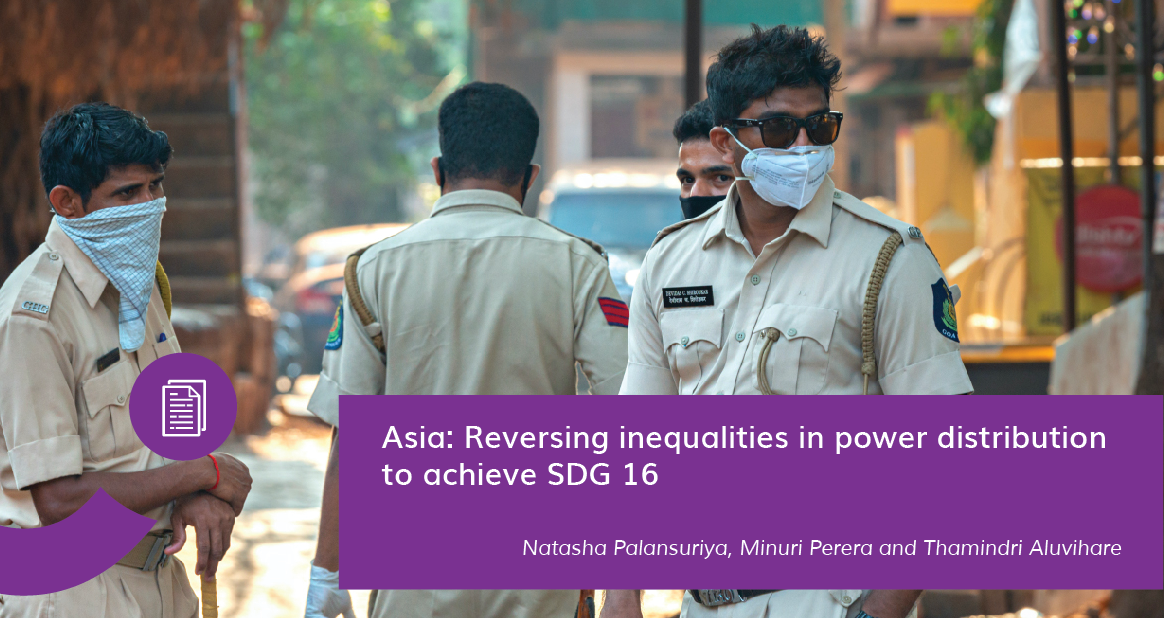As countries adopt COVID-19 response-and-recovery plans, there is an opportunity to achieve more peaceful and just societies with more inclusive,…
Across the Asia region, COVID-19 has exposed unequal power distributions and their impact on the effective functioning of democratic institutions. This brief explores trends related to the independence of institutions (including legislative and judicial functions), accountability and corruption, public access to information, and data transparency. Pre-existing imbalances in power distribution have resulted in an increasing shift towards repressive and authoritarian governance, often under the pretext of pandemic management. The abuse of power and its impact on the protection of fundamental rights is apparent in the widespread shrinkage of democratic spaces. Finally, the brief analyses how vulnerable communities are being further disempowered during the pandemic, and it explores themes of economic justice, social protection and basic services, as well as the pandemic’s impact on different population groups, such as undocumented persons, migrant workers and refugees, and the implications for women, children and LGBTQ+ persons. Policy recommendations highlight the importance of SDG 16 localization, the need to reinforce independent institutions including at global, regional and national levels to safeguard the democratic space, and the need for increased investment in strengthening democratic actors and institutions. It recognizes that, despite the challenges, the current context also provides an opportunity for collective action towards ”Our Common Agenda”, as outlined by the UN Secretary General, to reinforce the global social contract.


